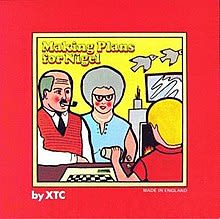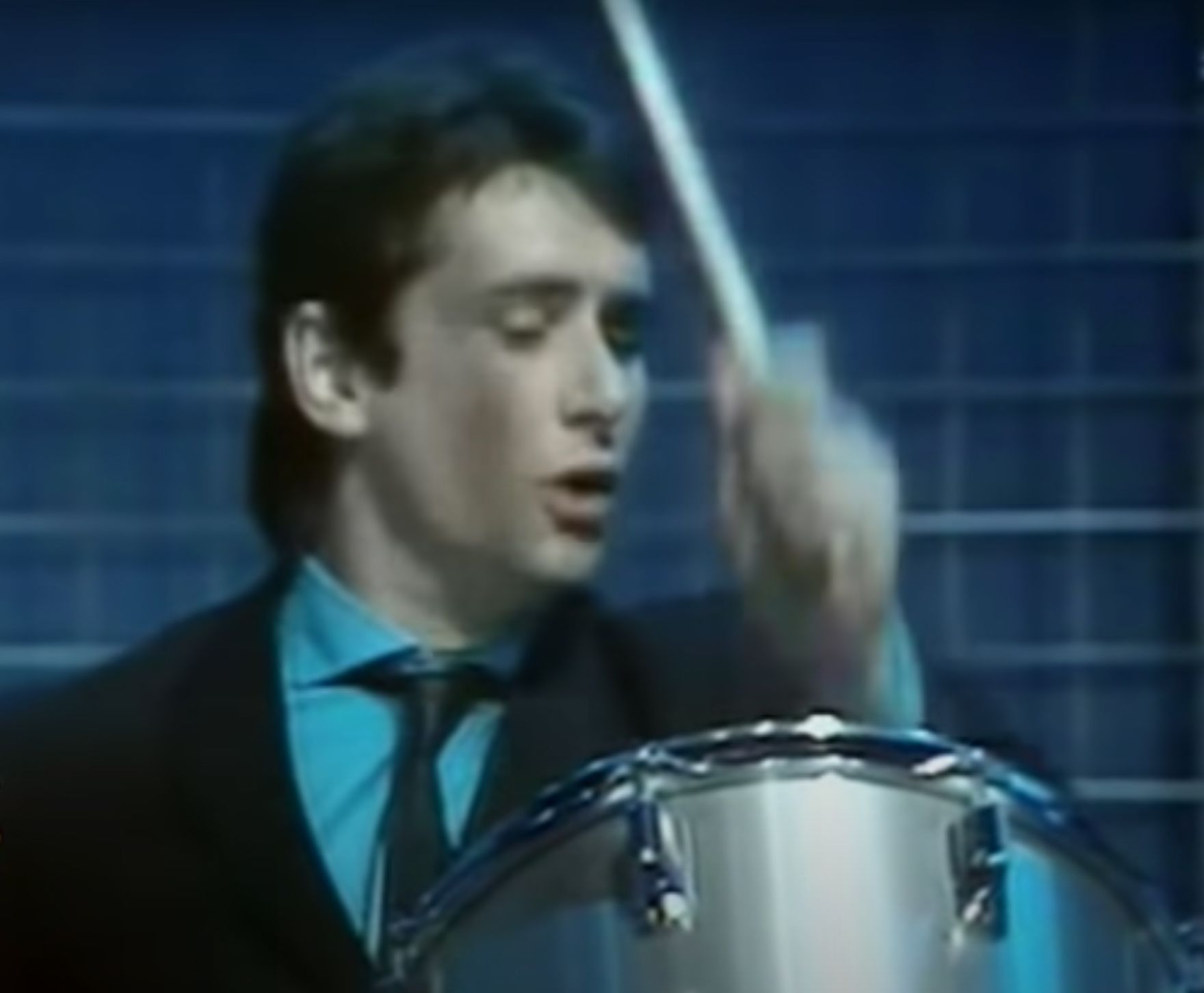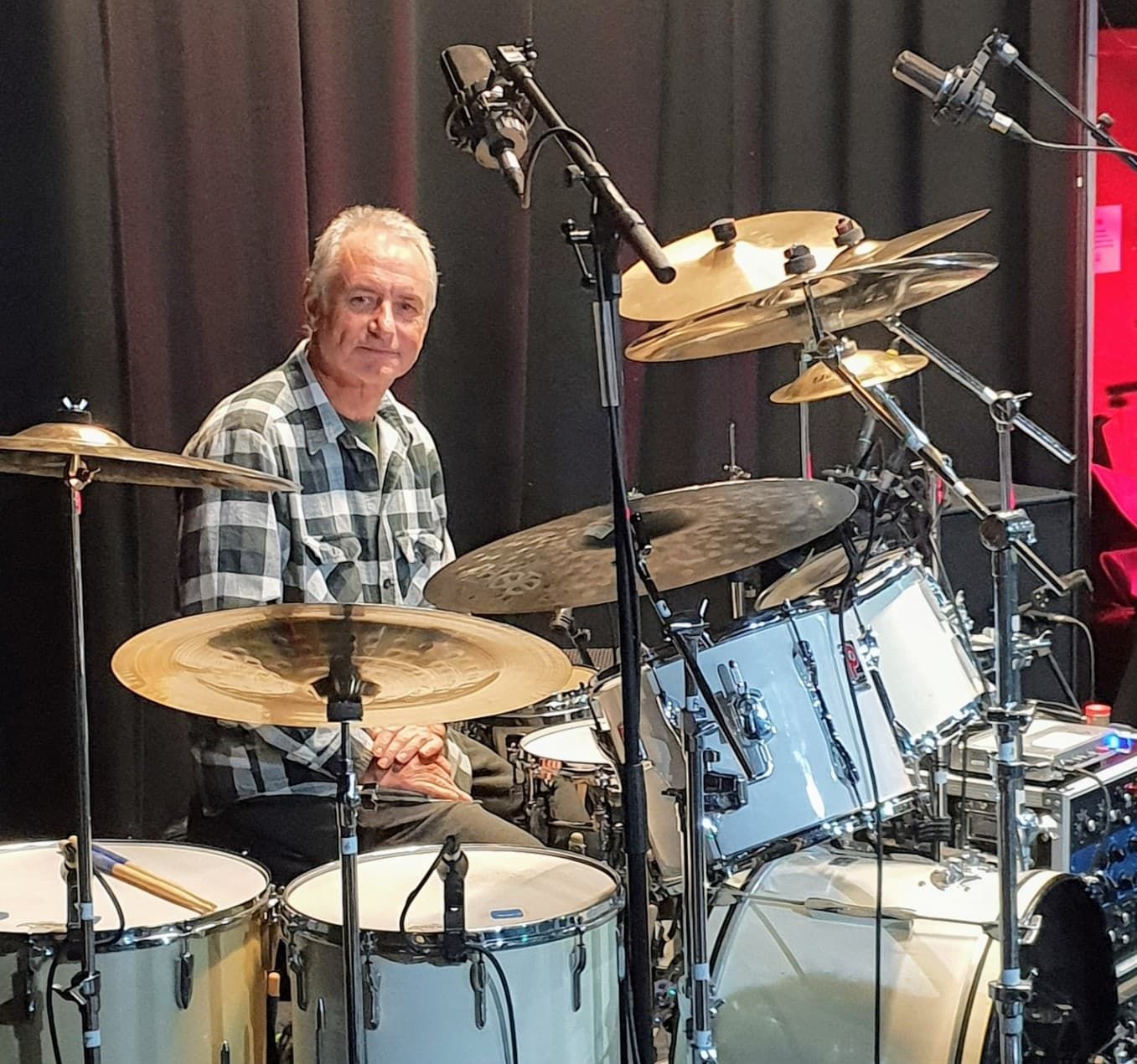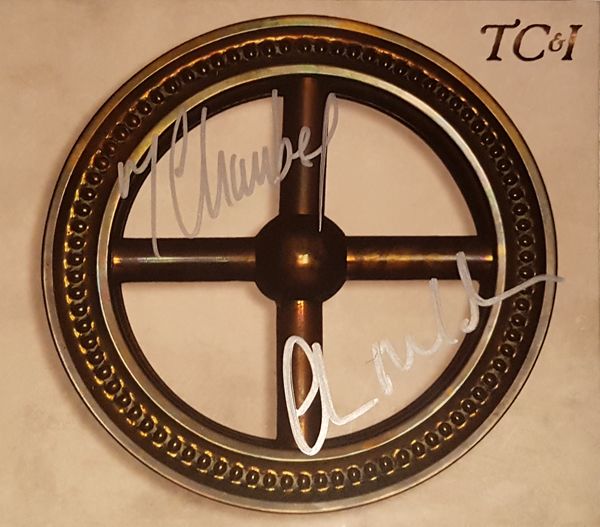Terry Chambers
From XTC to EXTC

When you think of Swindon, what comes to your mind? The Railway Works, the Magic Roundabout, or that time in 1984 when Roger Moore was filmed at the former Renault parts depot? I know what you're thinking, clutching at straws. But there is one thing Swindonians can be proud of: XTC.
Drumming since he was 14, Terry Chambers was a core member of the group from 1972 to '82, when he moved to Australia for over 30 years. Much of the attention surrounding XTC has been on the frontrunner Andy Partridge (and rightly so), but a lot of the realisation of his music boiled down to Chambers' ability to turn his dreams to reality and be the backbone of XTC for over 10 years. XTC officially disbanded in 2006 after 14 unapologetically West-Country albums. In 2017 he returned for a collaboration with former bandmate and bassist, Colin Moulding, named TC&I to release an EP and a live album.
TC&I disbanded in early 2019 but soon Terry wanted to continue live shows and get back to doing what he does best. EXTC, a new collaboration, was formed at the beginning of the year to fulfil his desires to start performing once again before it could reach full-flight. The band was forced to land with the outbreak of COVID-19.
The story of Chambers and EXTC is not over, however. Although nearing 65, his drumming and percussions are far from concluded, and touring, he insists, will continue when the current crisis has blown over.
In a feature interview with Chambers, he told the history from the beginning. So put on some of XTC's golden tracks and continue scrolling.
Senses Working Overtime from XTC's 1981 English Settlement studio album.
XTC
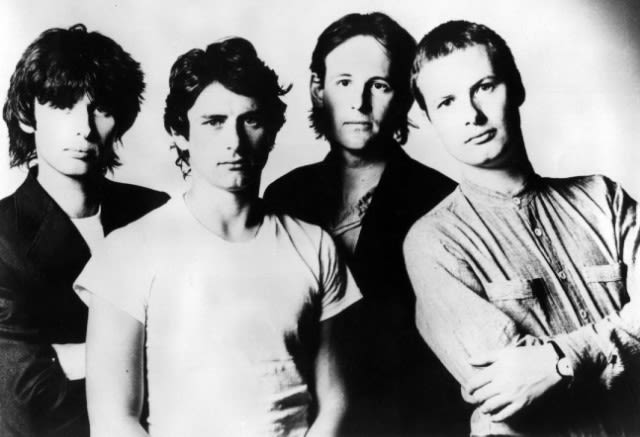
Formation
"Colin and Andy went to the same school, so they knew each other. I went to a different school, but we just met in a few pubs in Swindon that were mainly populated by the youth of the day", said Chambers. "You got to hear that certain individuals were in groups or bands. Andy was already playing in a band called Star Park." Once Chambers joined the band it was renamed Star Park (mk II), and they opened for Thin Lizzy in 1973.
We had a bit of a jam one time and saw that we were all on the same page, so it just went from there."
The name was then changed to Helium Kidz but the band decided on another name change in 1975, to the one we know today. We could have been listening to Dukes of the Stratosphear (a later endeavour by Partridge, Moulding, and Dave & Ian Gregory in 1984), but they eventually ended up with XTC, "mainly because Andy felt whenever it was in print it would be in capital letters. It’s a memorable name, it was a smart move", said Chambers.
The band in 1976 consisted of Andy Partridge (guitars, vocals), Colin Moulding (bass, vocals), Barry Andrews (keys) and of course Chambers on drums. Andrews left while on their American tour in December 1978. When Dave Gregory joined as replacement (albeit a guitarist), he was worried about whether the fans would accept him because of his different style, but Partridge said for Mojo magazine, 'no one was fashionable in XTC, ever.'
Virgin Records
In 1977 XTC signed with Virgin Records after rejecting CBS, Harvest and Island. They first recorded 3D EP (cover art pictured) in 1977 at Abbey Road. They were signed on the same deal for six albums, something Chambers now regrets: "In hindsight it was a bad move because it meant when the successful songs came along we were still on a normal percentage. If we had a one or two album deal, then by the third we would have been in a position to renegotiate."
"You’re 21 and just happy to be making records so you don’t want to rock the boat."
A record company want sales in return for their many different services, and if a band is not performing as wished then things can sour quickly. "When you’ve signed a record company, they want sales and you have to dance to their tune", said Chambers. But sometimes the pressure from the label can aid in constructivism and the collaboration of band members, and that can be seen with XTC.
Chambers also remarked that XTC became more successful during the late 70s, in comparison to their early work in 1976 (White Music and Go 2). This is partly down to pressure from the label but also because they became better musicians over time; his drumming improved and the songwriters followed suit, something that is often overlooked. "Live gigs helped the songwriting too. We all became better musicians as a result. Getting better at your craft as you go on. The pressure from the record company probably helped – if you haven’t hit your straps by the third album, they will look at you a little bit “have we made the wrong decision with this lot?” they might have said. That’s just how it was in the music industry", said Chambers.
That 80s sound
The gated reverb is a technique in which the capture of the drums by a microphone(s) is altered in a way which gives a punchy and quickly cut off live sound (view how it's done here and here on Vox).
Bands like Genesis, Duran Duran, and New Order but also newer artists like Haim, Lorde and even Drake all use the gated reverb.
The first XTC album that fully utilised the gated reverb was in 1979, with Drums and Wires, and was named partly for its expansive drums, put together by producer Steve Lillywhite and engineer Hugh Padgham. "We started to experiment with that to give the album a bigger sound. It was a step in a different direction to the previous two albums. We needed to make a bit of a change because we didn’t have a great deal of commercial success", said Chambers.
They experimented with the technique on tracks like Ten Feet Tall and Day in Day out on Drums and Wires. The album was a critical and commercial success, with the classic British Beatles-esque melody sound fused with XTC's fresh approach on rock 'n roll. The album in which the iconic sound really comes alive on is on Black Sea where Lillywhite and Padgham perfected their new-found love on Chambers' drums.
It continued after Chambers' departure with intrusive but addictive drums on tracks like This World Over or King For A Day.
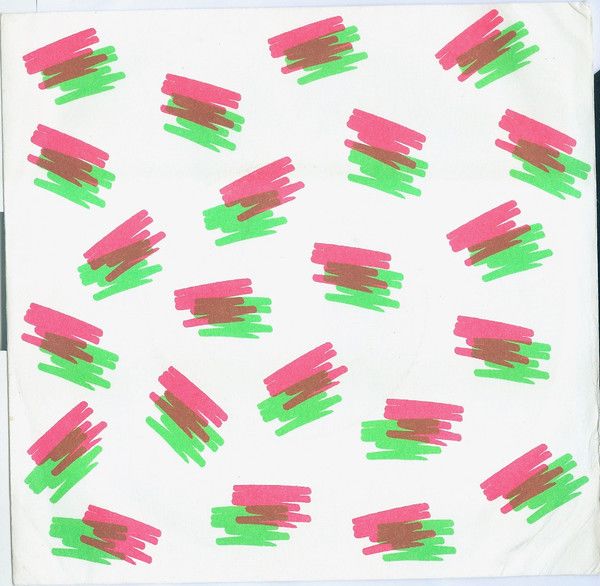
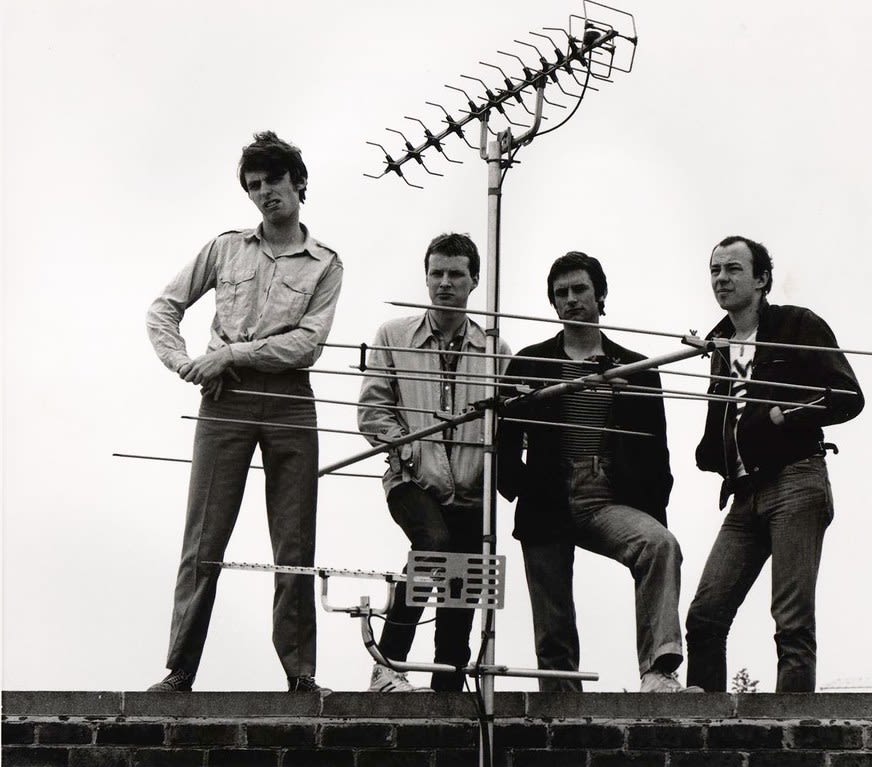
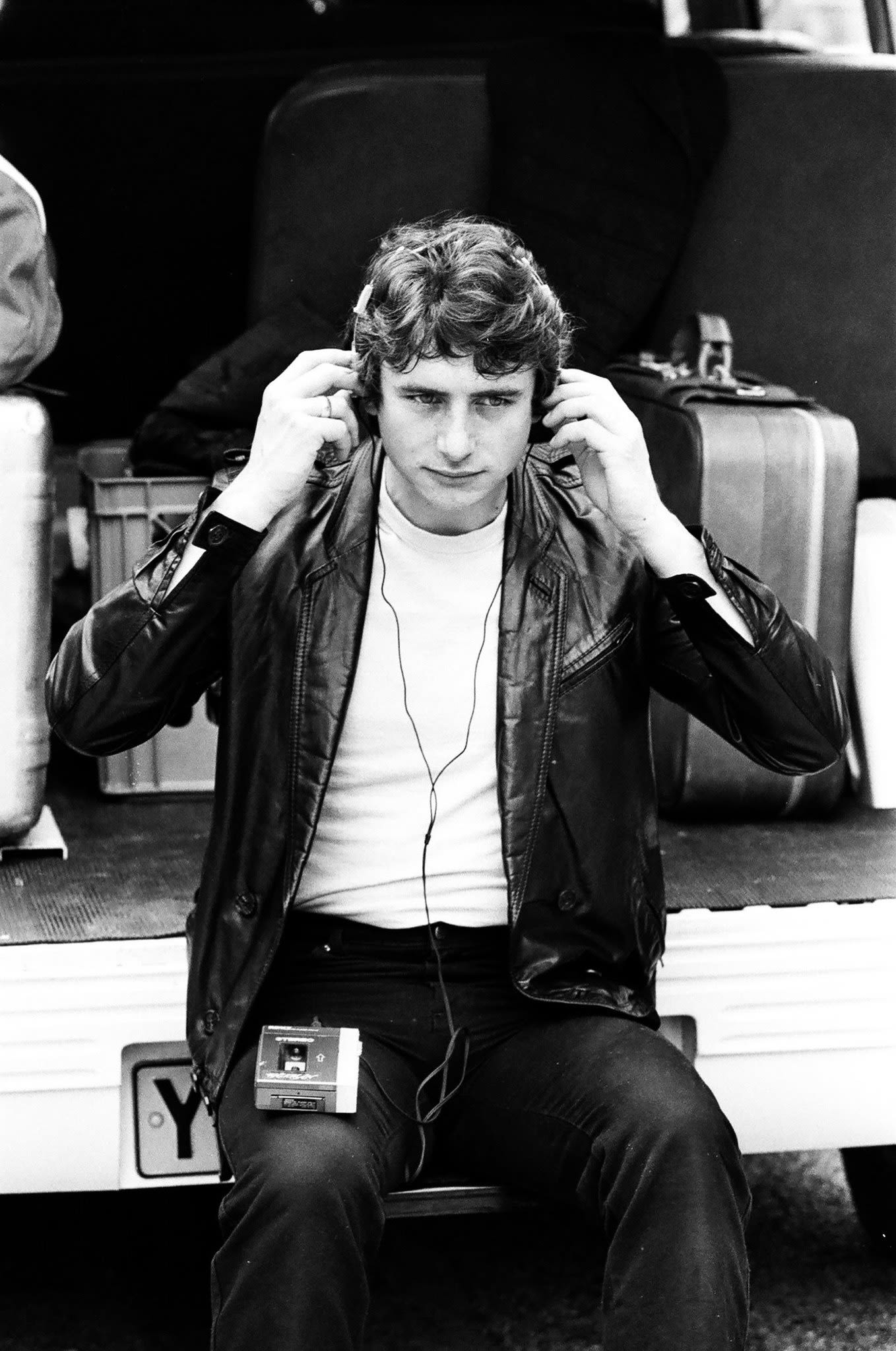
Why Nigel?
Written by Colin Moulding for Drums and Wires, Making Plans for Nigel was one of the most popular songs for XTC which reached within the top 17 in the UK Singles Chart, but the exact spot isn't confirmed due to a computing error by the chart compilers. It spent 11 weeks in the charts.
"Why Nigel? Good point! Nigel could be anyone; Tom, Dick or Harry."
The song took a week to produce, but the rest of the album only three. It's about controlling parents who have sealed their child's fate to working for the now defunct British Steel plc.
Devo's cover of Rolling Stones' Satisfaction partly inspired Chambers to come up with the rhythm on the lead single. It was a misrepresentation of Partridge's vision for the song, but the inverted drum tones and accents worked brilliantly to form that distinctive Nigel pattern. The track also included the gated reverb.
The press reviews for Drums and Wires were 'glowing' remarked guitarist Dave Gregory in 2008. XTC appeared twice on Top of the Pops! to perform the song.
But it was only after their shows on TOTP! that their gigs were starting to sell out when they returned touring in late November 1979.
Making Plans for Nigel also featured on an interactive Black Mirror episode on Netflix, titled Bandersnatch (2018). Check out the music video, directed by Russell Mulcahy, below.
Making Plans for Nigel, Drums and Wires.
An image problem
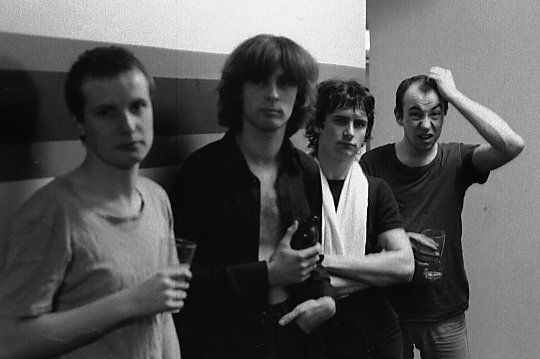
There's no denying that XTC had an image problem in the UK. A lack of greater success can be boiled down to a few reasons. Let's be real, a lot of the most successful artists, then and now, came from the big cities; London, Manchester or Liverpool. Swindon? Leave it out. That's the stance that the record label and management took in the late 70s, telling the group to change their accents in order to appeal to a perceived idea of what a core British audience would want.
"We weren’t a particularly good-looking band like Duran Duran. We didn’t have the edge that The Stranglers or The Clash had."
Thankfully, the reputation of Swindon did not translate abroad, and XTC had notable success in the United States and Japan. "A lot of the people in the States never saw XTC live", said Chambers. "We finished out there in about '82 and a lot of people never became interested in XTC until the Skylarking album. Whether they were fans of Todd Rundgren [American producer on Skylarking] or not, I don’t know. That album probably opened the way for XTC fans in the States." In 1989, XTC went on a few shows including Late Night with David Letterman (30 June 1989) which helped XTC reach a larger audience than they could back at home. Today, they have amassed a cult following and have 800,000 monthly listeners on Spotify alone.
"Once people saw us live, peoples’ attitudes tended to change, but it was a bit of a battle coming from a place like Swindon." Chambers compared the band to Devo, who came from the small town of Akron in Ohio, which is similar in population to Swindon. "We weren’t from the same mould that used to go and watch each other in the London, Manchester or Liverpool scenes for example. There were more places to watch each other in those places and a lot of those bands sounded similar too. Coming from Swindon probably isolated us a little bit", said Chambers. But there were undertones of relief and he was somewhat grateful for their origins. After all, XTC does have a distinctive sound.
For me it’s not satisfying playing another peoples’ stuff so if you are in a position to make your own, why not?
In 2016, Partridge also lamented on the fact that Swindon has a bit of a reputation problem, a joke town, and likened it to Staines or Slough (thanks, The Office). "Our managers, who spoke like upper-class twits, would say, 'When you do this interview with the NME, I don’t want you speaking all countrified. If they ask you where you’re from, I want you to say you’re from London or Manchester or Liverpool or Mars. Any-bloody-where. Just don’t say Swindon,'" explained Partridge. "But we thought it was a badge of honour, coming from the comedy town."
"The main problem with Swindon [and still is] is that there are few places to play original material", said Chambers. Places like London wanted original bands, but Swindon was keen for cover bands. "We had to get out of town to do what we wanted to do."
While there were few places to play in their hometown, Chambers cited some of his favourite places to play: "One of my favourite places to play was the Bird’s Nest. The Brunel Rooms (pictured right) and the Town Hall were pretty good to us as well."
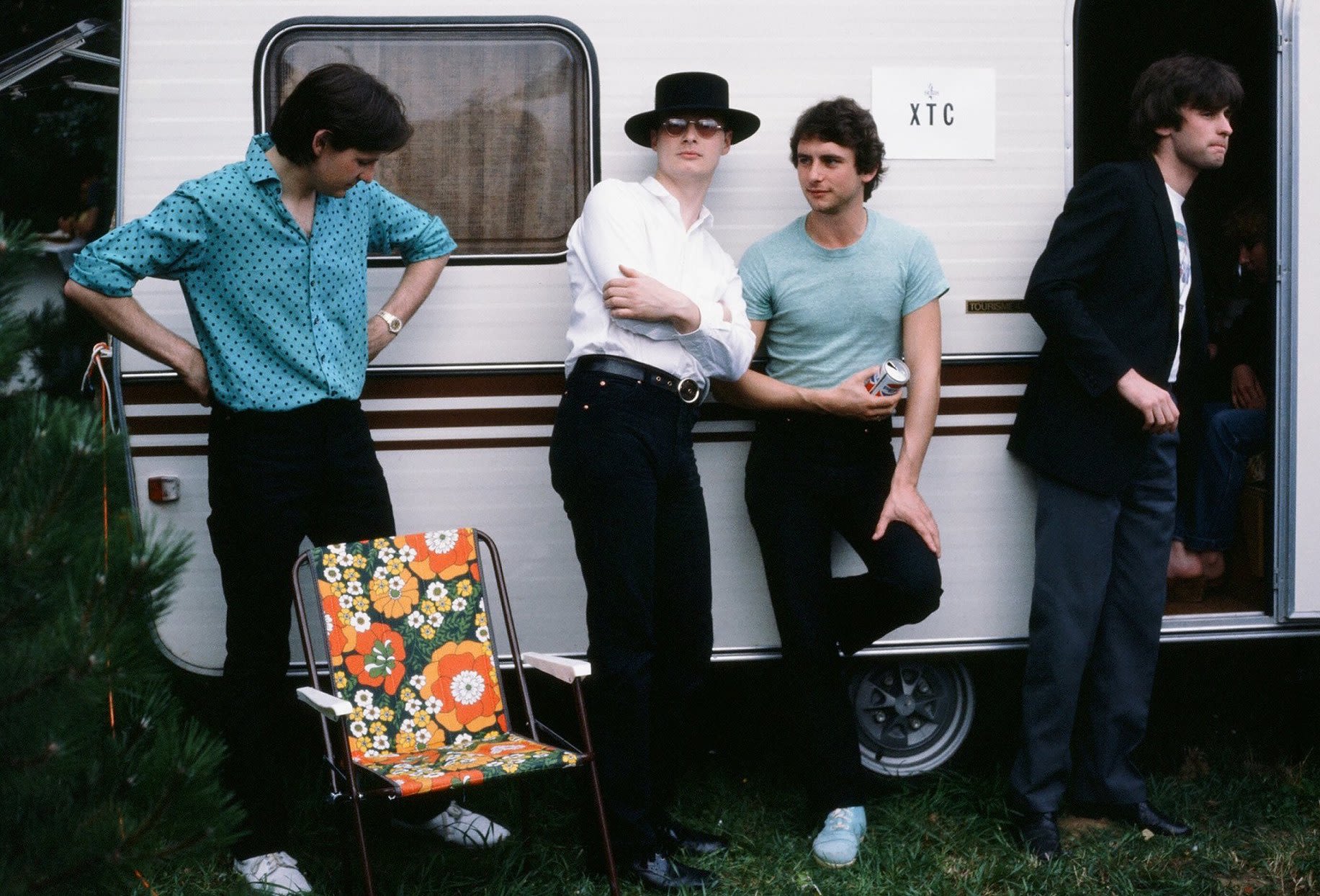
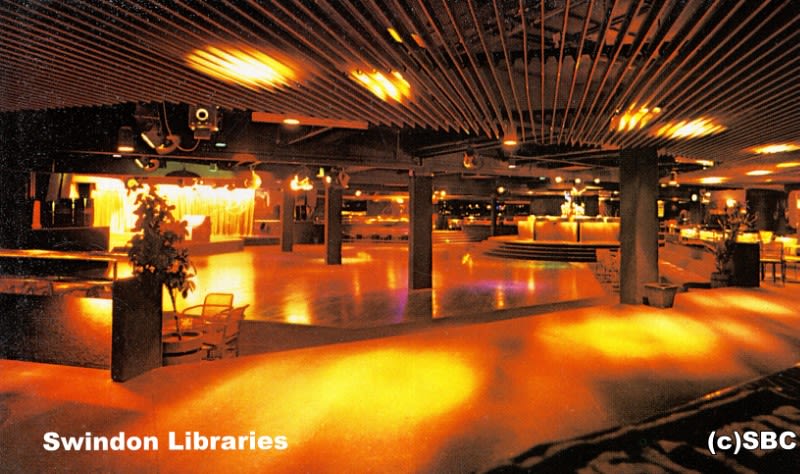
Leaving XTC
After English Settlement in 1982, XTC got to work on their next album, Mummer. The songs during production, as Chambers humbly noted, "wasn't a strong direction to follow from the previous album. It was heading in a direction which I didn’t particularly think was the right way to go." The '82 album reached number 5 in the charts while Mummer was a disappointing 51. He only featured on a few of the tracks, Beating of Hearts, Wonderland (a personal favourite, reminiscent of Duran Duran and the New Romantic scene) and Toys, and are distinctively more influenced by ska.
With Mummer, XTC also introduced a new engineer and producer, whom Chambers wasn't fond of and aided the band moving into a different direction. Chambers stressed the importance of playing the music live for an album to properly gel - something he is keen to do with EXTC. Partridge took the decision to only make studio albums and quit live performances. "During Drums and Wires, Black Sea and English settlement the band was playing really well, and the songs were strong. When Mummer came along, we weren’t playing them live and they weren’t so strong. And [me] not being a songwriter, it all added up to one thing." It's no secret that Partridge was having great internal difficulties, from the pressures of the music industry and his addiction to valium, which led to Partridge having a nervous breakdown on stage in Paris. Although it wasn't the end of an era for Partridge, he still produced some fantastically unique albums like Oranges & Lemons later on and is still knocking about musically.
But the fact XTC were not performing live anymore was the core reason as to why Chambers wished to go separate ways: "the whole point for me as to being in a band was to play live, and they didn’t want to do as much anymore. Playing live was more important than recording." Soon after his departure, he was replaced with Pete Phipps, XTC went into managerial litigation and suffered from financial issues.
Terry left for Australia in the early-mid 1980s and started a family, but didn't quit drumming entirely. He toured with Dragon until mid-1985. XTC and Chambers had a huge influence on later Brit-pop and the iconic resurgence of the gated reverb over the last decade, something that the band helped to champion in the 1970s.
TC&I
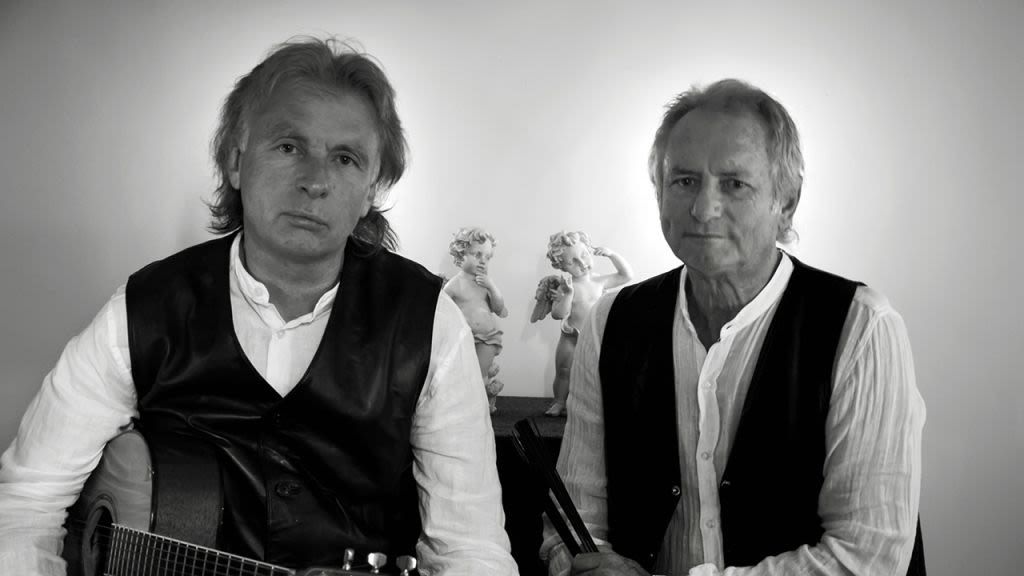
Unfinished business
Chambers returned to the UK in 2016. TC&I (you can guess where the name was derived) was a collaboration with Terry and ex-XTC's bassist Colin Moulding. Their EP Great Aspirations released on 7th October 2017.
Written by Moulding, the collaboration distanced in style from that familiar but underrated XTC sound from the 70s, but still included big drums and proud West-Country vocals from Moulding.
"You’re only here once in your life and this felt a bit like unfinished business. When I left XTC it wasn’t the greatest set of circumstances and you can’t go through your life thinking ‘what if?’ so when Colin offered the opportunity I thought, yes let’s do this again", said Chambers in an interview with Jammer Direct.
They played six sold-out shows at the Swindon Arts centre and subsequently released the live album Naked Flames: Live at Swindon Arts Centre in August 2019. Seasoned musicians Steve Tilling (vocals, guitar) and Gary Bamford (keys) also became integral to the duo.
Wonderland from the live album.
"Colin decided that he had achieved what he had wanted to achieve but I enjoy playing live music, so I persuaded Gary and Steve to continue."
They disbanded in January 2019 after Colin had successfully pursued his curiosities, but Chambers wasn't finished just yet.
Favourite song or album?
"I can’t name a specific song, but Black Sea was a pretty good album from start to finish. That was my favourite album that I was on. Oranges and Lemons was a pretty good album after I left."
What is your philosophy on drum tuning?
"I didn’t spend a great deal of time tuning [during XTC]. I wanted them to sound beefy. Since I’ve been back playing again during TC&I and EXTC, I’ve got a bit more technical with the tuning. I use Tune-Bot and DrumDial to get the drums where they should be."
Favourite place you have performed live?
"I enjoyed playing in the States. It took me back to my childhood being a massive cowboy fan. The countryside out there was fantastic. Texas, Arizona and New Mexico were great."
Which drummers influenced you?
"Ian Paice, John Bonham, Simon Kirk and Bryan Downey, those sorts of guys. Most of the heavy drummers were my early influence. But a lot of those guys were influenced by Buddy Rich and Gene Krupa, so if they listened to them why aren’t I listening to them? It goes all the way back to them."
EXTC
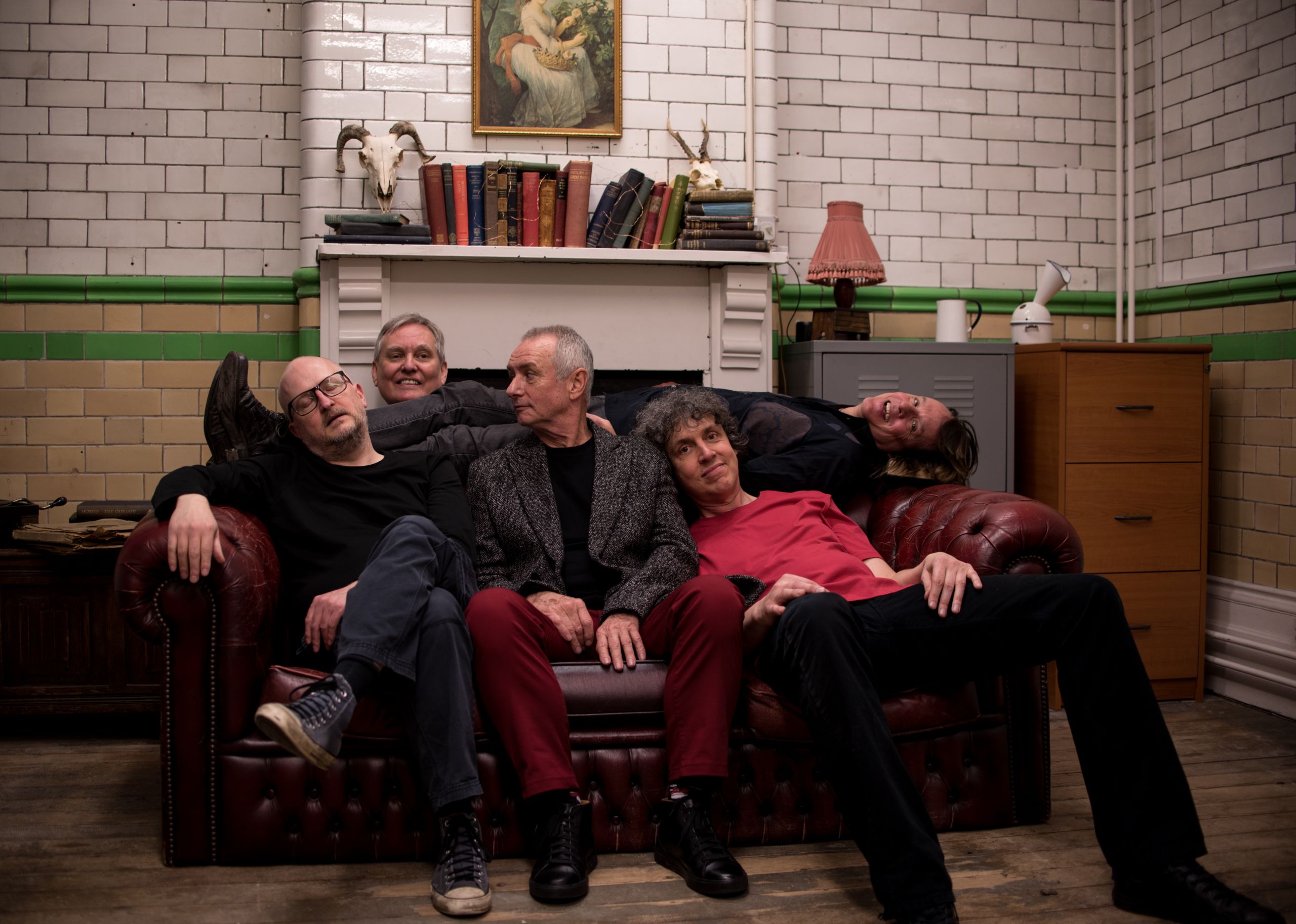
Let's get this show on the road
With two already signed up, EXTC was nearly complete. Matt Backer (vocals, guitar) and Ken Wynne (bass, vocals) soon joined the existing group which meant they could begin touring. Some warm up sessions took place in Swindon for the band to properly gel, but with the outbreak of the coronavirus everything has been either postponed or cancelled. Chambers insisted that when the time comes around to record, he plans to release more EXTC content online, and probably still on compact disc; his personal preference of listening over online streaming platforms.
"It’s a bit of a ball-breaker to be honest. It stopped before it even started. We are trying to stay positive and hopefully things will get back to normal sooner rather than later."
Chambers is eager to tour, something that he missed toward the end of his time with XTC. But not with the same intensity as the 1970s; "10-weeks at a time rattling about in a bus was ball-breaking", but rather a more relaxed two or three weeks at time. He also planned to go to the States in October 2020, but with recent events it's likely that won't happen until next year.
As with any band covering songs, there is a challenge of either completely conforming to the original production, or spinning it in a way that suits a new era or band-style. EXTC seem to have found a happy medium: "XTC was influenced by various groups. I think the same can be said with EXTC, but we are trying to remain true to the way XTC is with a little twist on it. Quite a few of the songs we are doing at the moment I never recorded so I’m putting my own bit in there as well. I use the original drummers as a template, but I put my own take on it", said Chambers.
XTC have retained much of the fanbase from their golden era and EXTC have a real chance to reinvigorate the scene. "It's staggering to think after all this time people are still interested. That’s one of the reasons I put this band together, to take this stuff on the road," said Chambers. He has always remained in contact with the ex-XTC members and the current EXTC gang, and didn't rule out the possibility of doing more collaborations with Moulding, but it does seem as if the ship has sailed on that front.
"I think the next 12 months will be fun and I hope it will give some enjoyment to people in the live scene again. It’s about having fun really."
Stay up to date with the band and check out EXTC's Facebook page here, and their Twitter here.
See Dommett Young Photography's Facebook page here and support their work!
Many thanks to Local Studies (Swindon Libraries) for their permission in using local pictures.
Follow the author, Nathan Day, here! This was produced for an online MA assignment for the Centre of Journalism, University of Kent.
With thanks to the fans from Reddit r/XTC for some questions: u/GeneralsAndMajors, u/ICanSmellPurple, u/FraserCrane, u/dnikebot and u/manfrenjensenjen.
Many thanks to Terry Chambers who happily answered question after question on 15th April 2020. Organised by partner (and manager!) Lynn Farrar.


